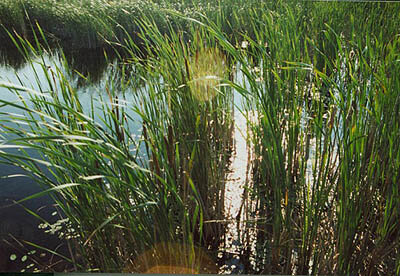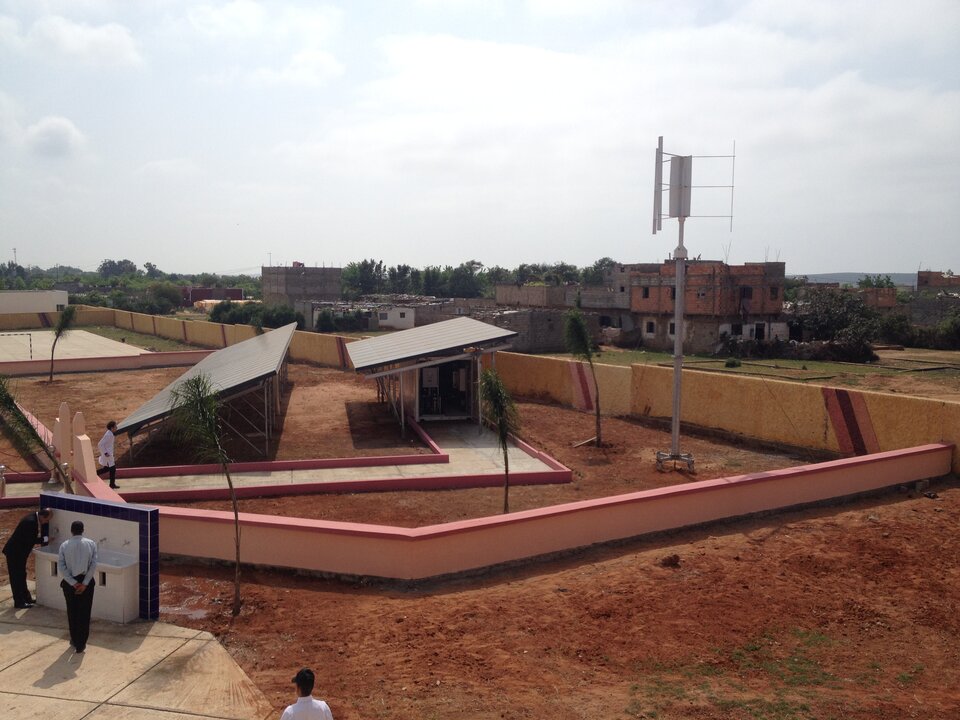Keeping a tab on water
One of the UN Sustainable Development Goals, set in 2015, concerns clean water and sanitation for all. Access to clean water is a fundamental prerequisite for achieving other sustainable development goals too. Water is of course one of the scarcest resources in some parts of Africa, which is why the monitoring and managing of water resources has become one of the top priorities on the continent.
Satellites can play a major role in providing suitable information to authorities and aid organisations on the ground to continue the preservation of wetlands and put a halt to further desertification.

ESA’s TIGER initiative develops Earth observation applications in close collaboration with its African partners in order to respond to the urgent need for reliable water information in their countries. This information comprises data on the extent of water bodies needed for irrigation, water quality, soil moisture and urban sanitation.
An open-source Water Observation and Information System (WOIS) is being implemented that will monitor, assess and take inventory of water resources in a cost-effective manner.
Africa's precious ecosystems can be protected by employing satellite imagery to create accurate maps of existing water resources, suitable dam locations and land cover. ESA's family of Sentinel satellites, and in particular the two Sentinel-2 satellites, are ideally suited for this purpose. The Sentinel-2 mission’s frequent revisits over the same area and high spatial resolution allow changes in inland water bodies and the coastal environment to be closely monitored.

Wetlands are vital for Africa's local wildlife and play an important role in the overall water cycle on the continent. GlobWetland, an ESA-led initiative in collaboration with the Ramsar Convention Secretariat, has been addressing the issue of diminishing wetlands by providing detailed maps based on satellite data. GlobWetland, which is funded by ESA's Data User Element (DUE), regularly holds training sessions for local users to understand and integrate this data into their work.
Illegal fishing, extensive farming, disastrous flooding and tourism are just a few things that have a major influence on the quality and extent of local water resources. Major flooding can have disastrous effect on a local community in terms of loss of home and destruction of crops. The WOIS can contribute to a daily Flood Bulletin, which can help predict where flooding is about to take place and as such minimise the effects.
Water security is of major significance to African countries affecting the society in terms of access to drinking water, food and energy. As many river basins on the continent cross national borders it also has a political aspect to it. Satellite Earth observation data is ideally suited to provide an objective, trans-boundary solution to monitoring this precious resource on a large scale.

The MELiSSA project (Micro-Ecological Life Support System Alternative) is the European Project closed life-support system. It aims to produce food, water and oxygen for manned space missions. The project targets to ease human exploration of the Solar System, but will also serve current global challenges including water provision in harsh environmental circumstances.
A pilot plant at the French–Italian Concordia base in Antarctica has been serving as proof-of-concept and achieved the recycling of ‘grey water’ from washing or food preparation for the last decade. In partnership with UNESCO, Morocco’s University of Kenitra uses the MELiSSA technology to supply fresh water for students in the village of Sidi Taïbi, powered by solar panels and wind energy.
By transferring the gained knowledge and working together with industrial partners the MELiSSA project has led to a number of industrial applications. From the MELiSSA patent Veolia has created the BiostyrTM biofilter that combines a biological reactor with a physical filter, which eliminate all organic as well as nitrogenous and particulate compounds from polluted water and produces clean, potable water.
Through the NuMoSa (Nutrients-Mobility-Sanitation) project, NUMOSA and IPStar expect to accelerate the development and deployment of the MELiSSA technology in remote places and disaster areas. This project will be able to provide a cost-efficient solution with no or low environmental impact to process grey and black water and produce water and nutrients.
The MELiSSA foundation is a non-profit organisation created specifically to raise funds for such humanitarian projects.




